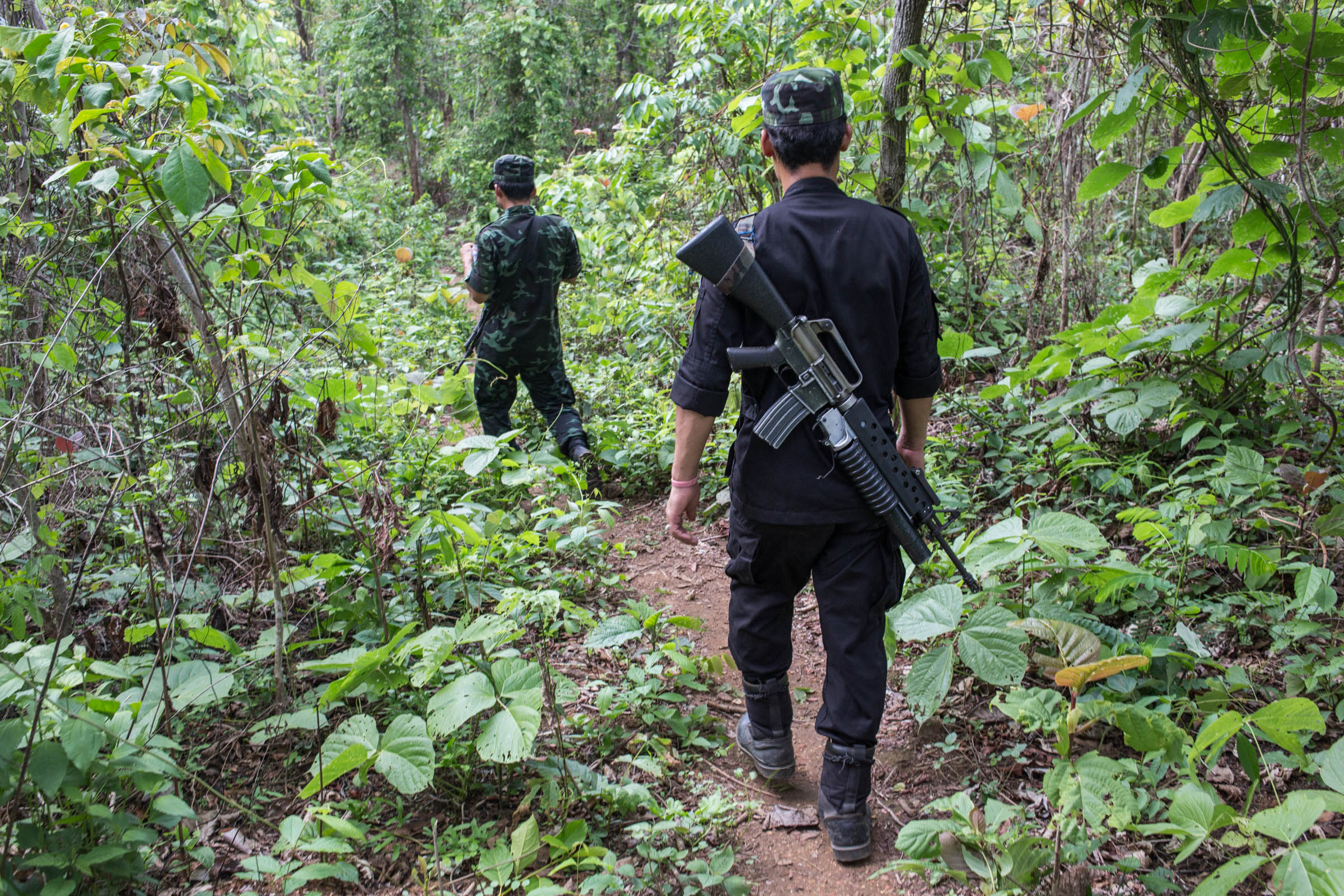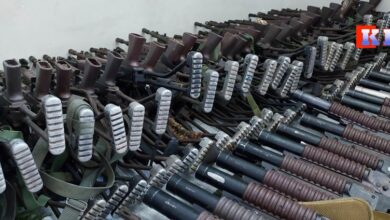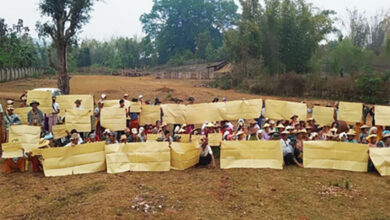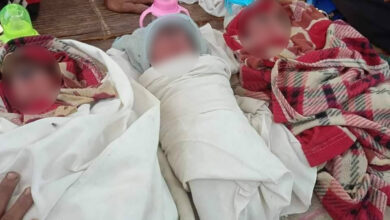Karen General – Constitutional Reform ‘Our Greatest Concern’

In an exclusive Karen News interview a senior commander in the Karen National Liberation Army (KNLA) has added his voice to the growing calls for Burma’s military-backed government to amend the country’s undemocratic constitution before the 2015 national elections, as it ensures effective military veto in parliament and blocks prominent pro-democracy politician Daw Aung San Suu Kyi from the Presidency.
Brigadier General Saw Kyaw Phyu of the KNLA stated that reforming Burma’s constitution is the first step towards lasting peace in the multi-ethnic country.
“Since the country is consisting of different ethnic races, we have to have an united political goal for everyone in the country,” he said, speaking to Karen News, “Currently, therefore, our greatest concern regarding the future of Burma is that the 2008 constitution, that had been ratified by the previous government, is reformed.”
General Kyaw Phyu maintained that undemocratic provisions in the current constitution, including laws that ban Daw Aung San Suu Kyi from being elected President, and provisions that guarantees Burma’s military a decisive power in politics by granting it a 25% share of seats in parliament, directly stood in the way of peace.
“We can only look forward as ethnic minorities in Burma once there have been democratic amendments to the constitution – the future of ethnic nationalities and indeed all of Burma’s people will be better after this has happen – it is the most important factor. At the moment, all of the ethnic groups are united in not agreeing with the current constitution,” he said.
General Kyaw Phyu urged that those with an interest in creating a democratic Burma should act together in pushing for democratic reform, “the country Burma comprises of different ethnic nationalities, so, we cannot set our own goal just for our own ethnic group.”
The statement from General Kyaw Phyu comes as the UN Special Rapporteur to Burma, Tomas Ojea Quintana, warned, in one of his last addresses before leaving his six-year tenure, that the constitution threatened the country’s future.
“Leaving the military with an effective veto over constitutional changes, among others, does not augur well with Myanmar’s democratic ambitions especially leading up to the 2015 elections,” he said in an official statement on the 23rd of May, “The right of the people of Myanmar to choose their own Government and President must also be respected and upheld.”
David Scott Mathieson, Human Rights Watch’s senior researcher on Burma, went further than Quintana in maintaining that the current constitution was inherently illegitimate.
“Burma’s 2008 Constitution isn’t legitimate in any meaningful way,” he said in an interview with Karen News. “It was drafted largely by the military after it had staged a coup d’état, excluded many important ethnic voices in its drafting, was written whilst many legitimate political parties had their leaders incarcerated or exiled, includes numerous provisions that preserve military political and economic power, and was passed by a nationwide referendum with an incredulous result by a population that knew little about the document let alone had read it.”
Mr. Mathieson noted that the constitution stood in the way of peace between the central government and ethnic nationalities.
“The constitution is an obstacle, but its more how it’s being used an instrument by the military and its ruling party, the USDP, to limit legitimate political aspirations by ethnic nationalities for greater federalism, and that is why its standing in the way of peace and democracy,” he said.
The constitution enshrined political power in the hands of the military, Mr. Mathieson said. “Of particular concern is the chapter preserving substantial military power, including control over its budget, immunity from civilian prosecution, and extraordinary powers for the Commander-in-Chief. There is also very undemocratic provisions throughout such as the 25 percent preserved seats for serving officers, key ministerial portfolios, the provisions to choose a president, and the emergency provisions contained in Chapter 13. All in all, it’s a document designed to preserve military interests, not guarantee democracy.”
Chairwoman of the National League of Democracy, Daw Aung San Suu Kyi has for months been spearheading efforts to amend the 2008 constitution. The NLD, alongside the Generation 88 Generation Peace and Open Society, launched a nationwide petition campaign last week aimed at putting pressure on the military-backed government to reform the constitution.
Aung San Suu Kyi has often said that reforms in Burma could not be taken seriously while the constitution remained unchanged. “Those of you who think that Burma has successfully taken the path to reform, would be mistaken… If you want to know why you are mistaken, you only have to study the Burmese constitution, not a pleasant task I can tell you. But if you read it carefully, you will understand why we cannot have genuine democracy under such a constitution,” she said.
In spite of mounting criticisms that time is running out before the 2015 elections, President U Thein Sien has said that any amendments to the constitution will only take place in the “right conditions” after agreements had been made with Burma’s ethnic minorities in ongoing peace talks.
“Agreements reached during political dialogue, an important aspect of the peace process, will require amendments to the Constitution,” The President is quoted as saying in a radio address to the nation last week, according to an English translation of his speech on the New Light of Myanmar, a government-owned newspaper. “At the same time, to see the emergence of an open and free society that we desire, we must strive to amend the constitution to comply with democratic norms and values,” he added.




